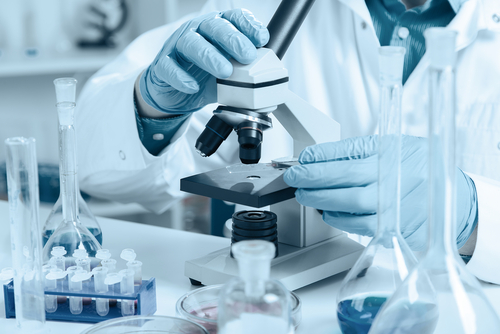Pathology is a branch of healthcare dedicated to examining tissues, organs, fluids, and cells to understand the nature, causes, and effects of diseases. Pathologists analyze samples obtained through biopsies, surgeries, or bodily fluids to identify abnormalities. This information helps determine the stage or progression of a disease and guide treatment decisions.

Setting the Gold Standard with GMCClinics
When it comes to your health, you deserve the best. At GMCClinics, we are proud to announce that our laboratories have been awarded the coveted Gold Seal of Approval by the Joint Commission International (JCI). This recognition signifies our unwavering commitment to delivering the highest quality, safest, and most patient-centered laboratory services in the region.
Achieving the JCI Gold Seal requires meticulous adherence to the organization's stringent international healthcare standards, including every aspect of our laboratory operations, from personnel qualifications and equipment accuracy to patient safety protocols and infection control measures.
This prestigious accreditation is a promise to you that we go the extra mile to ensure every test conducted in our laboratories is accurate, efficient, and reliable.
Choosing GMCClinics, Choosing Reliability:
With our JCI-accredited laboratories, you can be confident that you are receiving the highest caliber of care. We offer an extensive range of laboratory services, catering to all your diagnostic needs, from routine blood tests to specialized analyses.
Additional Laboratory Services:
- Fertility Testing
- Allergy Testing Panel
- Vitamins, Minerals, and Metals
- STD Profile
- Antenatal Screening
- Polycystic Ovarian Syndrome (PCOS) Profile
- Therapeutic Drug Monitoring
- Blood Alcohol Level
- When to Schedule a Pathology Consult?
-
Pathology testing is often advantageous in situations like
- Unexplained Weight Loss: Significant weight loss without diet or exercise changes.
- Chronic Fatigue: Persistent exhaustion or weakness despite adequate rest.
- Abnormal Bleeding: Unexpected or excessive bleeding, bruising, or clotting.
- Prolonged Pain: Persistent or severe pain not alleviated by usual methods.
- Digestive Issues: Persistent abdominal pain, changes in bowel habits, or difficulty swallowing.
- Skin Changes: Unusual changes in moles, growths, or skin appearance.
- Respiratory Problems: Chronic cough, difficulty breathing, or chest pain.
- Neurological Symptoms: Frequent headaches, dizziness, vision changes, or tingling sensations.
- Fever & Infections: Unexplained fever, frequent infections, or night sweats.
- Lumps or Masses: Noticeable lumps, swellings, or unusual masses in the body.
- As part of a routine health assessment.
- Why Choose Pathology at GMCClinics?
-
- World-class expertise: Renowned pathologists with experience and advanced training.
- Cutting-edge technology: Innovative equipment for accurate and rapid diagnoses.
- Holistic approach: Comprehensive testing modalities tailored to your needs and concerns.
- Luxurious and comfortable environment: Modern facilities and personalized attention ensure a pleasant experience.
- Unwavering commitment to patient care: A focus on providing the highest quality care with empathy and respect.
Prioritize your health and take control by understanding the power of pathology. Schedule your appointment with us today.

